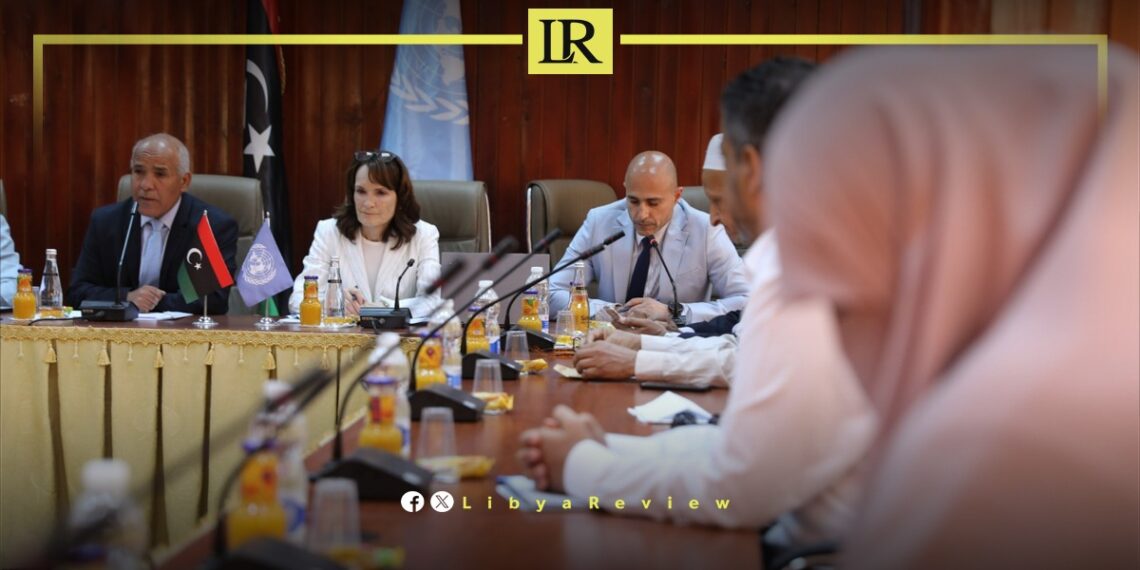Assistant Secretary-General, Resident and Humanitarian Coordinator for Libya Georgette Gagnon attended a crucial meeting in Ghadames. During the meeting, she discussed the peace and sustainable development in Libya.
The session brought together the acting mayor of Ghadames, the municipal council, local community leaders, as well as young people and women, to deliberate on pressing matters affecting the region.
The discussions highlighted the critical need for stability, enhanced transportation infrastructure, and urgent improvements in water systems, healthcare, and education to better serve the local population. Additionally, the meeting focused on addressing the immediate concerns of local farmers and creating more employment opportunities for youth and women.
In a post on the “X” platform, Gagnon said: “I joined the acting mayor of Ghadames, members of the municipal council, local community leaders, and the youth and women in their beautiful city to discuss peace and sustainable development.”
She added: “We discussed the importance of establishing security, the vital role of transportation infrastructure, the need to enhance the efficiency of water systems, healthcare, and education for the residents, and urgent support to address the concerns of local farmers and provide more job opportunities for youth and women.”
Gagnon emphasised the crucial role of the government in supporting sustainable development initiatives across all municipalities, and the efforts of UN agencies and funds in Libya to work with local communities and the government to promote peace and prosperity for all in Libya.
She noted: “It was also my pleasure today to launch the UN’s new strategy in Libya, YouEngage, with the youth of Ghadames, Derj, and Awal. I listened to their ideas and visions for facing the challenges they encounter.”
The ideas, voices, and opinions of youth, both male and female, are fundamental elements in building sustainable peace and prosperity in Libya. YouEngage is a new way to engage with youth to bring their voices to decision-makers and support them with training and advocacy.


